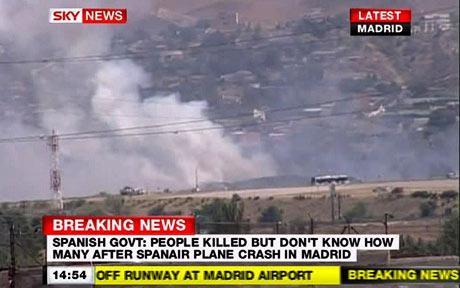It’s very (very) rare for non-events to be news. Usually, the only thing that is news is what happened, not what didn’t happen. Here’s an image of something that “happened”:

Here’s a story about something of tremendous significance. It’s about what “didn’t happen”:
Jet’s Nonfatal Crash Points To Increased Aviation Safety
The heroic actions of the pilots of a US Airways jet that ditched in the Hudson River in New York on Thursday highlighted what safety experts say is a broader trend in aviation: The system has never been so safe, and accidents have never been so survivable.
Crediting advances in technology, airplane design, and the training of pilots and flight attendants, experts say people are far more likely to avoid accidents or survive them than at any time in the jet age. Fatal accident rates have plummeted in the past decade, and in the past two years, not a single passenger on a U.S. commercial flight died in an accident, an unprecedented stretch. In 1995 and 1996, in contrast, nearly 500 passengers died in plane crashes.
“It’s getting to the point now where we can’t even pull up usable statistics because you are dividing into zero,” said Bill Voss, president of the Flight Safety Foundation, a nonprofit group that promotes aviation safety.
People tend to take this kind of thing for granted and don’t consider themselves wealthier because of it. But not being drowned or burned to death is valuable; enjoying more life is wealth, and if people were asked to pay cash for it, they’d generally pay a lot more than they pay for iPods, clothes, big houses, and other things they usually consider signs of wealth.










It’s the Frederic Bastiat story from a different perspective.
http://oll.libertyfund.org/?option=com_staticxt&staticfile=show.php%3Ftitle=956&chapter=35425&layout=html&Itemid=27
[…] Another example of the growth of wealth that most people don’t notice, or don’t consider a part of being wealthier. (For more on that theme, see below.) […]